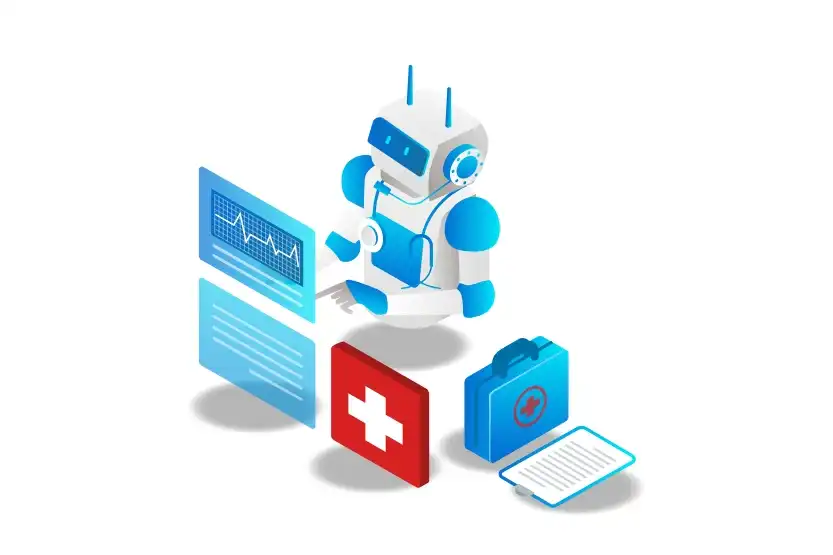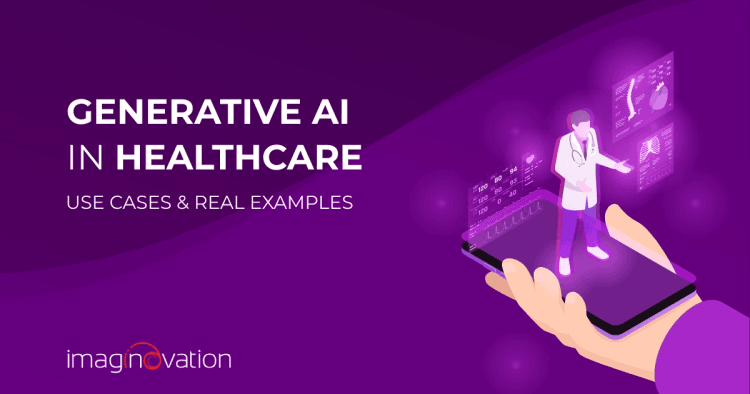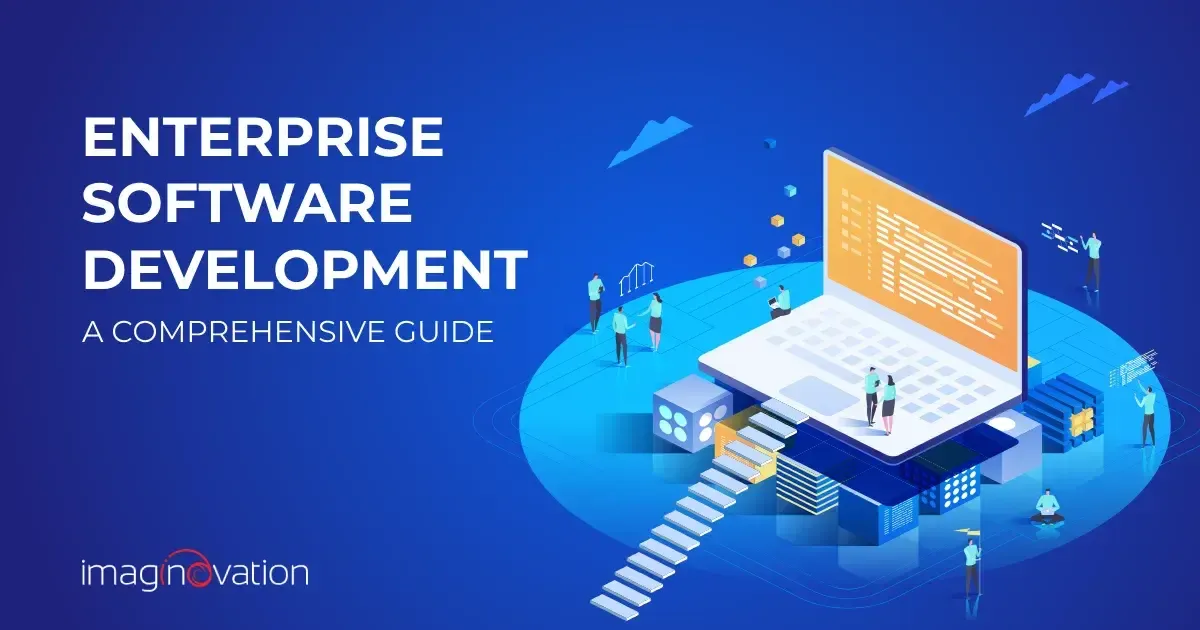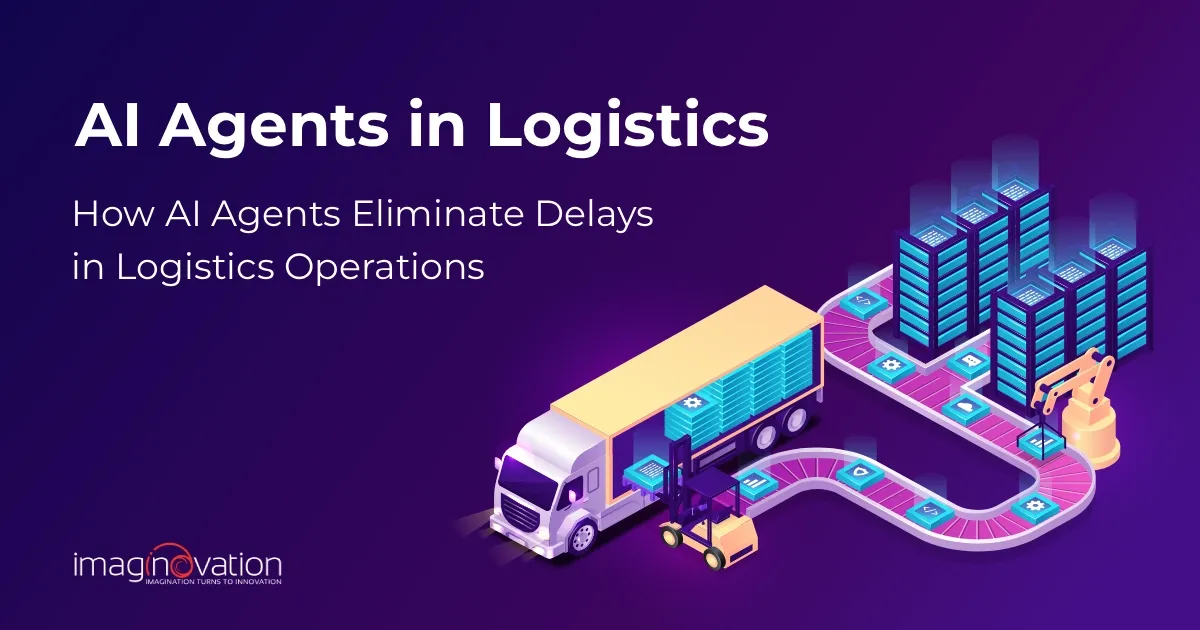To estimate the cost of building a website or an app, use our app cost calculator tool.
Healthcare operations rely heavily on information from clinical notes, diagnostic images, and claims summaries. With such a huge amount of unstructured data, it's no wonder generative AI can be a game-changer for healthcare.
Generative AI uses deep-learning algorithms and natural language processing to analyze and interpret complex data sets from different sources.
When used proactively, it can accelerate operational efficiency, improve patient care, streamline administrative tasks, and drive innovation.
As a result, the healthcare industry is adopting Gen AI with excitement.
Let's explore prominent use cases and examples of Generative AI in healthcare.
10 Generative AI Use Cases in the Healthcare Sector

With the help of advanced machine learning algorithms and data analysis, generative AI has the potential to address many critical challenges across the healthcare sector.
Here are ten key use cases where generative AI makes essential contributions in the healthcare domain.
1. Automating administrative tasks.
Many administrative tasks in healthcare take up employee time and overwhelm hospital staff. These tasks include scheduling/rescheduling patient appointments, processing extensive patient data, managing medical professionals' work schedules, and many more.
Mishandled administrative tasks can lead to inefficient medical processes and errors in medical records.
With employee burnout among US physicians hitting 62 percent, Generative AI offers a way to ease the workload. It does so by streamlining admin tasks and cutting costs, which comprise 15 – 30 percent of healthcare spending.
Here's how generative AI can help in simplifying some of the administrative tasks in healthcare –
- It can streamline andautomate patient appointment scheduling. It uses patient history and doctor's availability to book time slots automatically.
- Gen AI can extract data from a patient's medical record and automatically complete the corresponding health registries, thus eliminating manual data entry and associated errors.
- AI-powered chatbots and hospital communication systems can handle routine inquiries and follow-ups, freeing medical staff to focus on more complex tasks.
- Gen AI can be trained to transcribe medical notes and update patient records.
- It can automate billing procedures and medical claims processing, resulting in fewer mistakes and faster reimbursement cycles for healthcare providers.
- Gen AI can also be trained to review lengthy medical insurance claims and determine which ones will likely be rejected.
Also Read: Redefining Healthcare through Automation: Challenges and Opportunities
2. Creating virtual simulations and medical training scenarios.
Medical applications that use Generative AI can produce realistic virtual simulations and training scenarios. These simulations allow medical professionals to replicate various medical conditions and procedures. It creates a safe, challenging, and controlled environment for medical practice and competence building.
Unlike traditional training, which can be restrictive, AI enables hands-on training without risking patient safety and provides opportunities for repeated practice and feedback.
Some examples of Generative AI medical applications include:
- Using Gen AI to create detailed and realistic 3D human anatomy models. This helps medical students understand complex human anatomical structures and practice orthopedics.
- Using Generative AI, medical educators can build patient case scenarios with varying symptoms and medical histories. This helps students practice and improve their diagnostic skills.
- Creating virtual surgical simulations. This enables medical professionals to practice surgical techniques before they perform procedures on actual patients.
3. Drug discovery & development.
Managing drug discovery and development is an essential use case for the medical sector. However, it often becomes challenging due to high costs, regulations, long timelines, and new technology advancements.
Generative AI can help speed up drug discovery by creating new molecular structures, reusing existing drugs, and improving drug formulations. AI models can predict drug interactions, design safer medications, and optimize clinical trials, reducing the time and costs of introducing new drugs to the market and making the process more efficient for patients.
According to statistics, the cost of new drug development, including failed drugs, averages between 1 billion and 2 billion USD, and Gen AI can help the pharmaceutical industry save billions annually. By significantly cutting the time to design new drugs, AI reduces expenses related to failed medicines and clinical trials.
Deploying Generative AI in healthcare also speeds up drug discovery by simulating compound testing to reduce costs and forecast potential side effects.
4. Diagnostics advancements.
High-quality medical scans are critical for accurate diagnoses. Generative AI boosts the capabilities of traditional AI by changing low-quality scans into detailed and high-quality scans (MRIs, CT Scans, and X-rays) that allow radiologists to find and identify anomalies and improve doctors' diagnostic abilities.
Some Generative AI models are also trained to analyze medical records and images, lab results, and additional patient data to assist in the early detection of various conditions; these include skin and lung cancers, fractures, Alzheimer's as well as diabetic retinopathy, among others. Gen AI facilitates early diagnosis and treatment planning by identifying biomarkers and forecasting disease progression.
Moreover, generative AI can even address the scarcity of diverse and huge datasets by generating high-quality medical images. This synthetic data boosts the ability of AI models to render accurate diagnoses across diverse patient groups.
Although generative AI can increase the accuracy and speed of diagnoses, it should still be regarded as a supportive tool for healthcare providers where human involvement is essential.
5. Generating synthetic medical data.
Medical research often struggles with limited access to diverse health data, particularly for rare diseases. Generating this data can be expensive and restricted by privacy laws.
Generative AI addresses these challenges by creating synthetic healthcare data that mimics real patient information while preserving privacy. This artificial data allows researchers and developers to work with realistic datasets safely and ethically.
How Generative AI Helps:
- Gen AI produces data that reflects various medical conditions and demographics, ensuring authenticity in generated datasets.
- GenAI maintains patient privacy by generating synthetic data, allowing secure research without using actual patient records.
- AI models can be customized to create specific datasets for diverse research needs.
- Synthetic data provides a controlled environment for testing algorithms and healthcare systems before real-world deployment.
- Gen AI enables precise model training without compromising patient confidentiality.
- Synthetic data ensures adherence to ethical and legal standards, addressing regulatory challenges and privacy concerns.
6. Natural Language Processing for Electronic Health Records
NLP models powered by Generative AI in healthcare are becoming popular. Through Gen AI, one can interpret complex medical data, such as doctor notes and patient records.
Here are some key benefits of using NLP in healthcare:
- NLP Models help medical professionals quickly find essential information in vast electronic health records, saving time and thus improving decision-making.
- By automating documentation and data entry, Gen AI frees healthcare professionals to focus more on patient care.
- NLP ensures precise categorization of clinical information for correct billing, reducing errors, minimizing revenue loss, and helping healthcare facilities stay financially stable.
7. Medical chatbots and virtual assistants.
Generative AI-powered medical chatbots and virtual assistants are known to outperform traditional AI models in predictive performance. These bots can converse with patients, helping them access healthcare services conveniently.
If your Gen AI-powered healthcare solution is integrated with electronic health record (EHR) systems, virtual assistants can support patients in scheduling, getting waitlisted, and canceling appointments independently of human intervention. In addition, they assist physicians with checking a patient's medical history and even ordering tests.
This leads to higher sensitivity and personalization, making these systems much more accurate and reliable. Generative AI is thus a powerful tool for enhancing predictive capabilities in healthcare.
8. Patient care.
Generative AI in medicine enables the creation of personalized treatment plans for patients.
Machine learning algorithms can analyze a patient's medical history, lifestyle, and other factors to develop a tailored approach. For example, an algorithm might examine a tumor's DNA to identify the genetic mutations driving cancer and suggest a precise treatment plan targeting those mutations.
Generative AI can also help doctors predict treatment outcomes by analyzing large patient datasets.
This allows AI to uncover patterns linked to specific illnesses and treatments, supporting doctors in making more informed decisions.
9. Restoration of lost capabilities.
Did you know that AI has incredible potential to help restore lost abilities like speech or movement in healthcare?
By analyzing patient data, AI can translate brain waves into text or nerve signals into movement, creating new possibilities in neurotechnology and rehabilitation.
Here's what Gen AI in medicine can do for the restoration of lost capabilities -
- For individuals with paralysis, Gen AI can analyze detailed personal data, such as medical history and lifestyle, and design treatment plans tailored to their specific needs.
- AI can help spot high-risk patients by analyzing patterns in data from those with paralysis, enabling earlier intervention and improved care.
- AI can reveal trends and patterns in large datasets of patients, providing insights for developing innovative treatment methods often missed by human analysts.
10. Medical research.
Have you heard how researchers use generative AI to speed up medical research?
This technology analyzes vast datasets of medical literature to identify patterns and insights in specific study areas, helping researchers generate novel research questions and theories.
Generative AI can identify genes and proteins linked to specific diseases, offering insights for researchers to uncover new drug targets and develop innovative treatments.
With generative AI, researchers can discover new possibilities for medical breakthroughs, paving the way for cutting-edge discoveries and advancements in healthcare.
Real-World Examples of Generative AI in the Healthcare Sector
Here are some real-world examples of Generative AI medical applications. Each success story presents a unique use case for you to build your organization’s Gen AI strategy.
1. Mass General Brigham
Mass General Brigham’s staff faced a surge of patients post-COVID. Leaders established a nurse-staffed hotline to answer questions, but the demand overwhelmed the system, with wait times exceeding 30 minutes.
Looking for solutions, Mass General Brigham turned to a Providence health system chatbot used to screen COVID-19 patients. By adapting CDC screening questions, they developed an AI-powered voice system to handle callers' questions and direct them to appropriate care. The new chatbot powered by Gen AI eased the pressure on their hotline by serving 40,000+ patients in week 1.
Today, nearly 1 in 10 Mass General Brigham doctors use generative AI that listens during patient visits and uploads notes to EHRs. Dr. Amy Wheeler, a primary care physician, told The Wall Street Journal that the AI is "incredibly accurate" in note-taking, allowing her to fully engage with patients without typing notes on a computer.
Mass General Brigham's use of AI highlights how this technology can help healthcare providers respond swiftly to large-scale health crises.
2. Recursion Pharmaceuticals acquiring two Canadian AI startups
The rise of strategic partnerships between biotech and AI startups signals generative AI’s increasing role in the pharmaceutical industry.
Recently, Recursion Pharmaceuticals acquired two AI startups for 88 million USD, including Valence, known for its generative AI capabilities in drug design from datasets.
Recursion aims to leverage its extensive biological and chemical datasets—over 23 petabytes of data and 3 trillion gene-compound relationships—on NVIDIA’s DGX Cloud to accelerate foundation model training for potential commercial release on BioNeMo, NVIDIA’s generative AI cloud platform for drug discovery.
Recursion's acquisition of Valence is intended to advance biopharma technologies and democratize large-scale models, significantly impacting drug discovery.
By analyzing molecular sequences, structures, and functions, generative AI can create novel molecules with desirable properties, allowing researchers to refine drug candidates without expensive lab work.
3. Vocable
Vocable is an AAC (augmentative and alternative communication) app for iPhone and iPad that helps speech-impaired individuals communicate.
By integrating ChatGPT-powered conversational AI, Vocable offers more contextually relevant responses, providing users with a conversational experience closer to natural dialogue. For users of Vision Pro, the app takes advantage of eye tracking and spatial computing, making it faster and more intuitive.
For 17.9 million Americans with speech difficulties, Vocable on Apple Vision Pro offers an affordable, advanced alternative to traditional $15,000 AAC devices. Its accessibility extends to a wide range of nonverbal individuals, including those with MS, ALS, autism, and those intubated in hospitals.
Partner with Imaginovation for Innovative AI Healthcare Solutions
In the fast-paced modern world, staying ahead of technologies like Generative AI is essential for every healthcare institution.
Partnering with Imaginovation for healthcare software development can open up a world of powerful, innovative AI solutions customized to meet the requirements of your hospital, clinic, healthcare center, or pharmaceutical company.
Imaginovation develops and integrates custom AI solutions for telehealth and remote monitoring, hospital management and patient engagement, and EHR.
Through AI-driven insights and analytics, our healthcare solutions help physicians and providers streamline operations and enhance efficiency, resulting in improved patient outcomes.
With a commitment to secure, ethical AI development, Imaginovation safeguards your data at every step.
Ready to transform your healthcare practices?
Contact Imaginovation for a personalized consultation, and let’s build the future of healthcare together!











